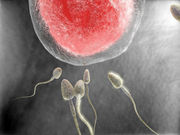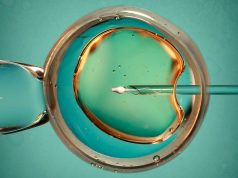Link independent of psychotropic medication use; psychotropic med use doesn’t harm fecundability
FRIDAY, June 3, 2016 (HealthDay News) — Depressive symptoms are associated with reduced fecundability, according to a study published online April 28 in the American Journal of Obstetrics and Gynecology.
Yael I. Nillni, Ph.D., from the Veterans Affairs Boston Healthcare System, and colleagues derived data from Pregnancy Study Online, an internet-based preconception cohort study of couples attempting to conceive. Female participants completed a survey at baseline and every eight weeks for up to 12 months or reported conception. Data were included for 2,146 women who had been trying to conceive for no more than six cycles at study entry.
The researchers found that, compared with no or low depressive symptoms, severe depressive symptoms at baseline correlated with decreased fecundability, regardless of treatment (fecundability ratio, 0.62; 95 percent confidence interval [CI], 0.43 to 0.91). For a 10-U increase in Major Depression Inventory score, the fecundability ratio was 0.90 (95 percent CI, 0.83 to 0.97). Compared to women who had no/mild depressive symptoms and had never used psychotropic medication, reduced fecundability was seen for women who reported moderate to severe symptoms and had never received psychotropic medications or who were currently being treated with psychotropic medications (fecundability ratios, 0.69 [95 percent CI, 0.48 to 0.99] and 0.72 [95 percent CI, 0.44 to 1.20], respectively). Regardless of depressive symptoms, formers users of psychotropic medications had increased fecundability (fecundability ratios, 1.22 [95 percent CI, 1.06 to 1.39] for no/mild symptoms and 1.18 [95 percent CI, 0.80 to 1.76] for moderate to severe symptoms).
“We found an inverse association between depressive symptoms and fecundability, independent of psychotropic medication use,” the authors write.
Copyright © 2016 HealthDay. All rights reserved.








